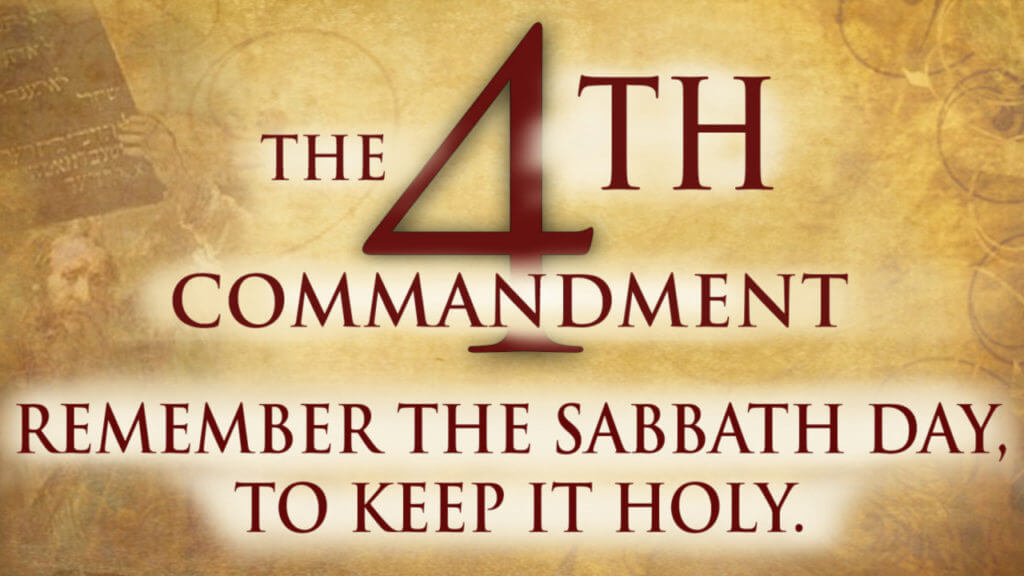
Seventh-day Adventists hold the belief that the biblical seventh-day Sabbath (Saturday) has not been changed and that it is still the appropriate day of rest and worship. Their perspective is based on a combination of biblical interpretation, historical analysis, and their understanding of the teachings of Ellen G. White, a co-founder of the Seventh-day Adventist Church. Here are some key points from the Seventh-day Adventist perspective on the Sabbath:
1. Biblical Foundation
Seventh-day Adventists point to the Fourth Commandment in the Old Testament, which instructs believers to observe the seventh day as the Sabbath (Exodus 20:8-11). They emphasize that this commandment is part of the Ten Commandments, which are considered foundational moral principles for believers.
Exodus 20:8-11 (NKJV) – The Fourth Commandment:
“Remember the Sabbath day, to keep it holy. Six days you shall labor and do all your work, but the seventh day is the Sabbath of the Lord your God. In it you shall do no work: you, nor your son, nor your daughter, nor your male servant, nor your female servant, nor your cattle, nor your stranger who is within your gates. For in six days the Lord made the heavens and the earth, the sea, and all that is in them, and rested the seventh day. Therefore, the Lord blessed the Sabbath day and hallowed it.”
It outlines the significance of the Sabbath as a day of rest and worship, rooted in God’s creative activity and His establishment of a rest day. It underscores the importance of dedicating time to connect with God, renew one’s spirit, and honor the principle of rest as part of God’s design for humanity.
2. Jesus’ Practice
Seventh-day Adventists note that Jesus himself observed the seventh-day Sabbath during his earthly ministry. They believe that if Jesus had intended to change the day of worship, he would have explicitly stated so or demonstrated it by his actions.
Luke 4:16 (NKJV):
“So He came to Nazareth, where He had been brought up. And as His custom was, He went into the synagogue on the Sabbath day, and stood up to read.”
In this verse, it is mentioned that Jesus had the custom of attending the synagogue on the Sabbath day. This practice reflects Jesus’ observance of the Sabbath and his participation in the religious life of his community.
3. Apostolic Practice
Seventh-day Adventists argue that the apostles and early Christian believers continued to observe the seventh-day Sabbath. They point to examples of Sabbath observance in the New Testament, such as Paul’s practice of attending synagogue on the Sabbath (Acts 17:2) and his interactions with both Jews and Gentiles on that day.
Acts 17:2 (NKJV) – Paul’s Sabbath Practice:
“Then Paul, as his custom was, went in to them, and for three Sabbaths reasoned with them from the Scriptures.”
Acts 13:14-15, 42-44 (NKJV) – Sabbath Observance in the Early Church:
“But when they departed from Perga, they came to Antioch in Pisidia, and went into the synagogue on the Sabbath day and sat down. And after the reading of the Law and the Prophets, the rulers of the synagogue sent to them, saying, ‘Men and brethren, if you have any word of exhortation for the people, say on.’… So when the Jews went out of the synagogue, the Gentiles begged that these words might be preached to them the next Sabbath. Now when the congregation had broken up, many of the Jews and devout proselytes followed Paul and Barnabas, who, speaking to them, persuaded them to continue in the grace of God.”
This practice demonstrates that Paul continued to adhere to Jewish traditions and participated in Sabbath gatherings. By entering the synagogue, Paul engaged with the Jewish community, where he could interact with both Jews and God-fearing Gentiles who were present.
4. Historical Analysis
Seventh-day Adventists believe that the transition from Saturday to Sunday worship occurred over a period of time, influenced by both Roman societal norms and changing theological perspectives. They often reference historical records and writings from the early Christian church to highlight the gradual nature of this change.
Jewish Christians continued to observe Shabbat but met together at the end of the day, on a Saturday evening. In the gospels, the women are described as coming to the empty tomb Greek: εις μια των σαββατων, lit. ’toward the first [day] of the Sabbath’,
— Wikipedia on Sabbath in Christianity
5. Ellen G. White’s Writings
Ellen G. White, a prominent early Adventist leader and prophetess, wrote extensively on the subject of the Sabbath. Her writings, which Seventh-day Adventists consider inspired, provide additional perspectives on the importance of Sabbath observance and its continuity from the Old Testament to the New Testament.
“The Sabbath will be the great test of loyalty, for it is the point of truth especially controverted. When the final test shall be brought to bear upon men, then the line of distinction will be drawn between those who serve God and those who serve Him not.” (The Great Controversy, p. 605)
These quotes highlight Ellen G. White’s emphasis on the significance of the Sabbath as a day of rest, worship, and a sign of God’s creative and redemptive power. Her writings also emphasize the idea that the observance of the Sabbath will play a role in the final conflict between good and evil.
6. Restoration of Truth
Seventh-day Adventists see themselves as part of a movement to restore biblical truths that have been lost or obscured over time. They view the observance of the seventh-day Sabbath as one of these truths that have been preserved through their understanding of Scripture.
It’s important to recognize that the Seventh-day Adventist perspective is distinct from other Christian denominations that observe Sunday as the day of worship. Different denominations interpret biblical texts and historical records differently, leading to varying beliefs about the Sabbath and the day of worship. As with any religious perspective, the Seventh-day Adventist view is shaped by the understanding of Scripture, tradition, and unique historical context.
References:
https://en.wikipedia.org/wiki/Sabbath_in_Christianity
https://www.adventist.org/the-sabbath/




